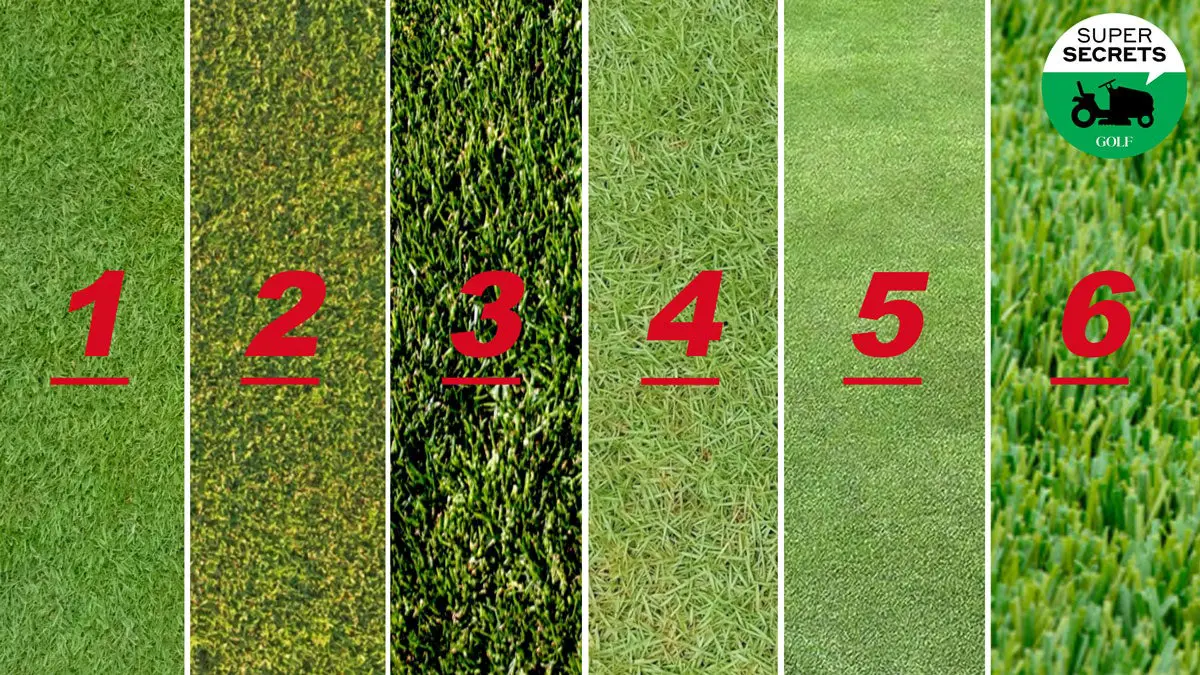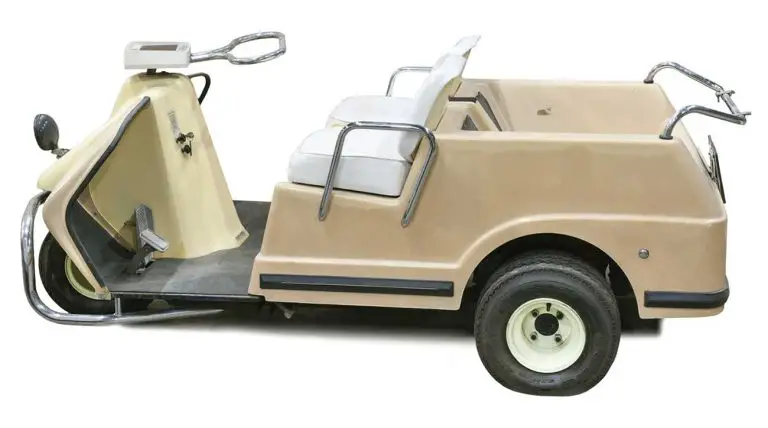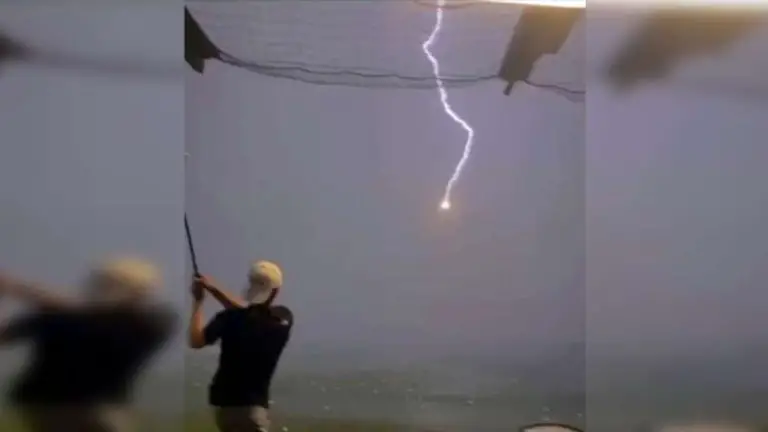Types Of Golf Course Grasses

When it comes to golf course design and playability, the type of grass used on the course plays a vital role. The choice of grass directly impacts the aesthetics, performance, and maintenance requirements of the golf course. Different grass varieties are selected based on climate, region, and specific course needs. In this comprehensive guide, we explore the diverse types of grasses commonly found on golf courses, their unique characteristics, and their suitability for different areas of the course.
From warm-season grasses that thrive in hot climates to cool-season grasses ideal for cooler regions, each type brings its own set of attributes and benefits. Bentgrass, known for its excellent putting surface, is commonly used on greens, while Bermuda grass offers durability and versatility for fairways and tees. Zoysia grass is appreciated for its resilience and low maintenance requirements, making it a popular choice. Additionally, ryegrass provides vibrant winter coverage when overseeded on warm-season grasses during colder months.
Understanding the characteristics and requirements of various grass types is essential for golf course owners, superintendents, and players alike. By examining the diverse options and their distinct advantages, golf course professionals can make informed decisions when selecting the most suitable grass varieties for their specific courses.
Join us as we delve into the fascinating world of golf course grasses, exploring their attributes, maintenance considerations, and the impact they have on the overall playing experience. Whether you’re an avid golfer or simply curious about the science behind a beautifully maintained golf course, this guide will provide valuable insights into the diverse types of grasses that form the foundation of these remarkable green landscapes.

Warm-Season Grasses: Thriving in Hot Climates
Golf courses located in regions with hot climates require grasses that can withstand high temperatures and drought conditions. Warm-season grasses are well-suited for these environments due to their heat tolerance and ability to maintain color and density during the summer months.
Some popular warm-season grasses used on golf courses include:
| Grass Type | Attributes and Characteristics |
|---|---|
| Bermuda grass | Excellent heat tolerance, quick recovery, and high wear resistance |
| Zoysia grass | Drought-tolerant, moderate shade tolerance, and low maintenance requirements |
| St. Augustine | Thrives in warm and humid climates, provides good ground coverage, and has a lush appearance |
Cool-Season Grasses: Thriving in Cooler Climates
Golf courses in cooler climates require grasses that can withstand colder temperatures and maintain year-round playability. Cool-season grasses are known for their ability to stay green and retain good turf quality in colder conditions.
Some popular cool-season grasses used on golf courses include:
| Grass Type | Attributes and Characteristics |
|---|---|
| Kentucky bluegrass | Excellent cold tolerance, high wear resistance, and a dense, attractive appearance |
| Perennial ryegrass | Quick germination, strong growth, and good recovery from wear and divots |
| Fine fescue | Tolerates shade and low fertility, low maintenance requirements, and fine leaf texture |
Bentgrass: The Preferred Choice for Greens
When it comes to golf course greens, bentgrass is the top choice for its exceptional playing characteristics and ability to provide a smooth putting surface. Bentgrass is known for its fine texture, dense growth, and ability to withstand close mowing.
Some popular varieties of bentgrass used on golf course greens include:
| Bentgrass Varieties | Attributes and Characteristics |
|---|---|
| Penncross | Widely used due to its adaptability, smoothness, and ability to handle low mowing heights |
| Providence | Exhibits excellent heat tolerance and disease resistance, making it suitable for various climates |
| A1/A4 | Known for their improved disease resistance and ability to maintain high-quality greens |
Bermuda Grass: Versatile and Durable
Bermuda grass is a warm-season grass that is highly versatile and can be used in various areas of the golf course, including fairways, tees, and roughs. It is known for its durability, ability to recover quickly from wear, and excellent playing characteristics.
Popular varieties of Bermuda grass used on golf courses include:
| Bermuda Grass Varieties | Attributes and Characteristics |
|---|---|
| Tifway 419 | A dense and fine-textured grass that provides good ball roll and wear tolerance |
| Celebration | Exhibits good drought tolerance, excellent recovery, and a dark green color |
| Latitude 36 | Known for its rapid establishment, fine texture, and exceptional cold tolerance |
Zoysia Grass: Resilient and Low Maintenance
Zoysia grass is a warm-season grass that offers excellent durability, low maintenance requirements, and good tolerance to heat and drought. It is commonly used on golf course fairways and tees.
Popular varieties of Zoysia grass used on golf courses include:
| Zoysia Grass Varieties | Attributes and Characteristics |
|---|---|
| Zeon | Fine-textured with good shade tolerance, drought resistance, and rapid recovery |
| El Toro | Known for its excellent wear tolerance, low water usage, and a dense, attractive appearance |
| Meyer | Offers good winter hardiness, good salt tolerance, and performs well in various soil conditions |
Ryegrass: Enhancing Winter Play
In regions with warm-season grasses, overseeding with cool-season ryegrass during the winter months helps maintain green fairways and tees. Ryegrass provides a vibrant, lush appearance and improves playability during the dormant season of warm-season grasses.
Popular varieties of ryegrass used for overseeding on golf courses include:
| Ryegrass Varieties | Attributes and Characteristics |
|---|---|
| Perennial ryegrass | Quick establishment, excellent winter color, and ability to withstand heavy foot traffic |
| Annual ryegrass | Fast germination, economical option for temporary winter color, and easy to establish |
| Intermediate ryegrass | Provides a balance between perennial and annual ryegrass, offering good winter performance |
Blends and Mixtures: Achieving the Best of Both Worlds
Blending different grass varieties can help golf course superintendents achieve specific characteristics and address site-specific challenges. Blends and mixtures combine the strengths of different grass types to optimize playability, aesthetics, and maintenance requirements.
Some popular grass blend combinations used on golf courses include:
- Bentgrass and fine fescue blends for shaded areas and areas with low fertility requirements.
- Bermuda grass and ryegrass blends for transitioning between warm and cool seasons.
- Tall fescue and Kentucky bluegrass blends for areas with variable sun exposure.
Factors Influencing Grass Selection
Several factors influence the choice of grass for specific areas of a golf course. Considerations include climate, water availability, maintenance resources, budget, playability preferences, and aesthetics. It’s crucial to select grass types that align with the unique requirements and conditions of the golf course.
Grass Maintenance and Care
Proper maintenance practices are essential for keeping golf course grass healthy, vibrant, and in optimal playing condition. Key maintenance activities include mowing, fertilization, irrigation, pest control, and aerification. Regular monitoring and adherence to maintenance schedules help ensure the longevity and quality of the turf.
Conclusion: Choosing the Right Grass for Golf Courses
Selecting the appropriate grass types for each area of a golf course is a critical decision that impacts playability, maintenance requirements, and overall aesthetics. By understanding the attributes, characteristics, and suitability of different grasses, golf course superintendents and owners can create an exceptional playing experience for golfers while maintaining the beauty and integrity of the course. Proper maintenance and care, along with regular assessment and adjustments, contribute to the long-term success and sustainability of the golf course’s grass surfaces.
Remember, each golf course has its unique requirements and considerations, so it’s essential to consult with turf professionals and experts to determine the most suitable grass types for your specific course needs.




